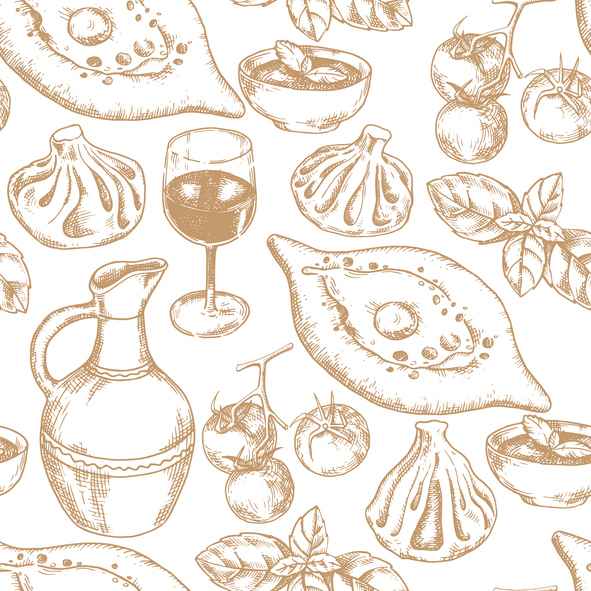Blog

Go back
#Cuisine
Georgian Cuisine - Dreamy Coalescence of Cultures and Exquisite Tastes
Collage of interesting facts and famous quotations about Georgian cusine.
Food philosopher Lisa Heldke emphasizes the high stakes of encounters with alien food: “It feels much more risky to taste the food of an unfamiliar culture than to listen to its music, look at its art, or read its literature, and indeed it is more risky... New flavors threaten – or promise – to challenge our very boundaries as we either admit them onto our grocery lists, or refuse them access.”
Anthropologist Allison James likewise emphasizes the primary identity produced by food: “Shared patterns of consumption mark our differences from others.” But she also adds that these patterns are rarely fixed, that “trade, travel, transport, and technology have all played their part in facilitating a considerable exchange of consumption practices.” Tourism delivers the greatest opportunity of our times for this exchange.
We can learn a lot when we think about food in a different way. It can be individual, family, ethnic, religious or national identity.
When they say Georgia is in many ways a place of astonishing power to charm, Georgian cuisine plays a very special role in that.
"Every Georgian dish is a poem," said Alexander Pushkin in 19th Century. Georgia, which was then still a country to be discovered as a place of great creative muse by the world renowned Russian poets and writers, went on to invade Soviet table in the 20th century.
Georgia now continues to be discovered by the world. One of the best-known foreign authors on Georgian gastronomy and Winner of Best International Cookbook Darra Goldstein mentioned: “the first visit to Georgia changed the course of my life”.
Another author who was fascinated with Georgian food and dedicated her work to Georgian culinary is Carla Capalbo with her book winning multiple international awards. She mentions: “It only took a few days for me to fall in love with the people, their food, wine and culture.”
After the dissolution of the Soviet Union and the country's instability during the 1990s, the pattern has finally been broken - the world has been opened to Georgia, sending many young people abroad for greater educational and economic opportunities.
In the culinary realm they not only discovered new flavours but got caught up in an entrepreneurial spirit. returning to Georgia they opened restaurants where they could literally play with their food, introducing new tastes and methods to the classical repertoire.
A mini Renaissance in Georgian food also took place beyond Georgia's borders. Georgians restaurants began opening throughout the world from New York to Beijing to Dubai. The taste of Georgia caught on with American foodies and now
Georgian food is, they say, trending hot.”
Darra Goldstein
One of the good examples of this is Khachapuri – one of the oldest Georgian foods. It has recently received worldwide recognition after being featured as one of the TasteAtlas's top 100 dishes and has Crossed Over Into a New York Essential Dish. Khachapuri is also nominated for UNESCO World Heritage status.
Goergian cuisine is now poised to test its fortune on the world table and experts say its potential is immense.


